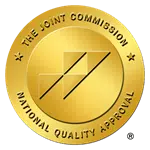The best treatment for methamphetamine disorder will vary for each individual, as it depends on their specific needs and circumstances. However, a comprehensive approach that includes a combination of inpatient or outpatient treatment, medication-assisted treatment if appropriate, and evidence-based behavioral therapies such as Cognitive Behavioral Therapy (CBT) and Contingency Management (CM) has shown to be effective in treating methamphetamine addiction. Additionally, ongoing support through aftercare services such as sober living homes, 12-step programs, and continued therapy can greatly contribute to long-term recovery.

What is Methamphetamine?
Methamphetamine, commonly known as meth, is a highly addictive stimulant drug that affects the central nervous system. It belongs to the amphetamine class of drugs and is known for its powerful euphoric effects and stimulating properties. Methamphetamine can be smoked, injected, or snorted, and its addictive nature can quickly lead to dependence and severe health consequences.
Seeking professional treatment for methamphetamine addiction is of utmost importance. Methamphetamine addiction is a complex and challenging condition that requires specialized care and support.
Professional treatment facilities and healthcare providers have the expertise and experience to address the physical, psychological, and social aspects of addiction. They can guide individuals through the recovery process, provide a safe environment, and offer evidence-based treatments to help individuals break free from the grip of addiction.
Methamphetamine Addiction Treatment Options
Outpatient Treatment
Outpatient treatment is a viable option for individuals with mild to moderate methamphetamine addiction, or those who have completed an inpatient program and are transitioning into a less intensive level of care. One of the primary benefits of outpatient treatment is the flexibility it offers, allowing individuals to continue their daily activities such as work or school while receiving treatment.
Therapy, counseling, and support groups are integral components of outpatient treatment. These modalities help individuals address the underlying causes of addiction, develop coping skills, and build a strong support network.
However, it is important to recognize that outpatient treatment may not provide the same level of supervision and structure as inpatient programs, which can be a limitation for individuals with more severe addictions or those who require a higher level of support.
Inpatient Treatment
Inpatient treatment, also known as residential treatment, is a comprehensive form of care that involves individuals residing at a treatment center for a specified period. This type of treatment offers several benefits for individuals struggling with methamphetamine addiction. One significant advantage is the round-the-clock supervision provided by trained professionals.
This constant supervision creates a safe and supportive environment, minimizing the risk of relapse and providing immediate assistance in case of emergencies. Inpatient programs also offer a highly structured daily schedule that includes intensive therapy, group sessions, and holistic approaches such as yoga or art therapy.
The immersive nature of inpatient treatment allows individuals to fully focus on their recovery, away from triggers and influences that may hinder their progress. It also provides a supportive community of peers who understand the challenges of addiction, fostering connection and accountability.
Medication-Assisted Treatment (MAT)
Medication-Assisted Treatment (MAT) involves the use of medications, in conjunction with therapy and counseling, to support the recovery process from methamphetamine addiction. While there are currently no FDA-approved medications specifically for methamphetamine addiction, certain medications may be prescribed off-label to manage withdrawal symptoms, reduce cravings, and address underlying mental health issues.
The use of MAT can provide several benefits, including increased engagement in treatment, reduced risk of relapse, and improved overall outcomes. However, it is essential to carefully evaluate the potential benefits and drawbacks of medication use in each individual case.
Some individuals may experience side effects or have a history of substance abuse that warrants caution in prescribing medications. The decision to incorporate MAT into treatment should be made collaboratively between the individual, their healthcare provider, and a team of addiction specialists.

Behavioral Therapies for Methamphetamine Addiction
Cognitive Behavioral Therapy (CBT)
Cognitive Behavioral Therapy (CBT) is a widely recognized and highly effective therapeutic approach for treating methamphetamine addiction. CBT helps individuals identify and change unhealthy thoughts and behaviors that contribute to their addiction.
By working with a therapist, individuals learn to recognize triggers, manage cravings, and develop healthier coping strategies. CBT focuses on building skills and resilience by challenging negative thought patterns and replacing them with more positive and adaptive ways of thinking.
This approach also emphasizes developing strategies to prevent relapse and maintain long-term recovery. Research has consistently shown that CBT is effective in reducing methamphetamine use and improving overall functioning.
Motivational Interviewing (MI)
Motivational Interviewing (MI) is a person-centered therapeutic approach that aims to explore and enhance an individual’s motivation for change. MI recognizes that individuals struggling with methamphetamine addiction may have mixed feelings about quitting, and it seeks to resolve ambivalence and strengthen their commitment to recovery.
In MI, therapists use empathetic listening, open-ended questions, and reflective statements to help individuals explore their personal values and goals. Through a collaborative and non-judgmental approach, MI helps individuals uncover their intrinsic motivation to change their behavior.
MI is particularly effective in the early stages of treatment when individuals may be more resistant to change. By fostering motivation and autonomy, MI empowers individuals to take ownership of their recovery journey.
Contingency Management (CM)
Contingency Management (CM) is a behavioral therapy approach that utilizes incentives or rewards to promote abstinence from methamphetamine use. In CM, individuals are provided with tangible rewards, such as vouchers or privileges, for meeting treatment goals such as abstinence or attending therapy sessions.
The concept behind CM is to reinforce positive behaviors and create a sense of accountability. By providing immediate rewards for desired behaviors, CM helps individuals stay motivated in their recovery journey. Numerous studies have demonstrated the effectiveness of CM in reducing methamphetamine use and increasing treatment engagement. It has shown particular success in encouraging individuals to remain abstinent during the early stages of recovery when the risk of relapse is high.
These evidence-based therapies empower individuals to make lasting changes, develop healthy coping strategies, and maintain long-term recovery from methamphetamine addiction. It is important to work with a qualified therapist or treatment center to determine which behavioral therapy approach or combination of approaches is most suitable for each individual’s unique needs and circumstances.
Supportive Aftercare Services
Aftercare plays a crucial role in maintaining long-term recovery from methamphetamine addiction. Completing a treatment program does not signify the end of the recovery journey; rather, it marks the beginning of a new chapter. Aftercare services provide ongoing support and guidance to help individuals navigate the challenges they may encounter post-treatment.
It is during this phase that individuals are reintegrating into their daily lives and facing potential triggers and stressors. Aftercare services provide the necessary tools, resources, and community support to help individuals stay on track and prevent relapse.
Sober Living Homes
There are various types of aftercare services available to support individuals in their recovery from methamphetamine addiction. Sober living homes are residential environments designed to provide a substance-free living environment with peer support and accountability.
These homes offer a safe and structured transitional environment for individuals who are reintegrating into society. Many sober living homes have house rules, regular drug testing, and participation in 12-step meetings or other recovery support groups.
12-step Programs
12-step programs, such as Narcotics Anonymous (NA), are widely recognized and accessible community-based support groups. These programs follow a set of principles and steps aimed at addressing addiction and promoting a spiritual and behavioral change. The fellowship, guidance from mentors (sponsors), and regularly attending meetings contribute to a sense of support, shared experiences, and ongoing accountability.
Ongoing Therapy
Ongoing therapy is another important aftercare option for individuals recovering from methamphetamine addiction. Individual therapy, group therapy, or a combination of both can provide continued support, help individuals process challenges, and learn strategies for maintaining sobriety.
Therapy sessions may focus on addressing underlying issues that contribute to addiction and developing coping skills to navigate triggers and manage cravings.
It is worth noting that aftercare services are not mutually exclusive, and individuals may benefit from a combination of these options. Each person’s journey through aftercare will be unique, and it is essential to tailor the support to their specific needs and preferences. By participating in aftercare services, individuals can build a strong foundation for long-term recovery and thrive in their newfound sobriety.
Conclusion
It is crucial to stress the significance of seeking appropriate treatment for methamphetamine addiction. Professional treatment facilities, like The Encino Detox Center, offer the expertise, resources, and supportive environment necessary for successful recovery. Methamphetamine addiction is a serious and challenging condition, but with the right treatment and support, individuals can achieve lasting sobriety and regain control of their lives.
If you or someone you know is struggling with methamphetamine addiction, I encourage you to reach out to The Encino Detox Center for professional help and support. Our team of experienced and compassionate professionals specializes in addiction treatment and can guide you or your loved one through the recovery process.
Your journey to healing and sobriety starts with taking the first step and seeking the right support. We are here to assist you on that path to recovery.


















